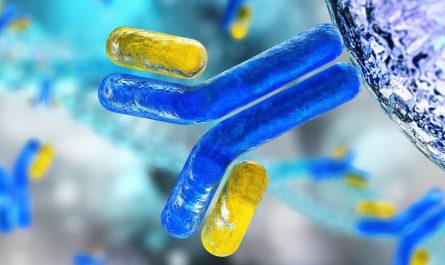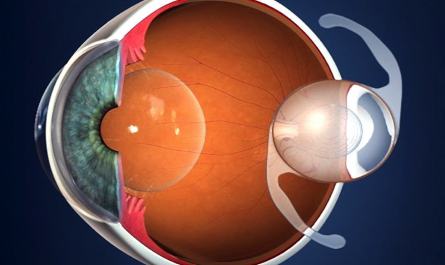What Are Mesenchymal Stem Cells?
Mesenchymal germ cell, also known as MSCs, are a type of adult stem cell that can be isolated from many tissues including bone marrow, adipose tissue, placental tissue, and umbilical cord blood. In the body, MSCs reside in the supporting connective tissues and can differentiate into a variety of cell types including osteoblasts, chondrocytes and adipocytes. Due to their multipotent properties and unique immunomodulatory functions, MSCs have become a major focus of regenerative medicine research and clinical trials.
Isolation and Characterization of Mesenchymal Stem Cells
MSCs are most commonly isolated from bone marrow where they make up a very small fraction of total bone marrow cells, around 0.01-0.001%. To harvest Mesenchymal Stem Cell , bone marrow is typically aspirated from the iliac crest of the pelvis and then centrifuged over a density gradient to separate mononuclear cells from other components. These cells are then placed in culture where most non-stem cells will fail to adhere, leaving a population enriched for plastic-adherent MSCs. Additional characterization steps involve analysis of specific surface marker expression by flow cytometry. MSCs are negative for hematopoietic markers like CD34 but positive for CD73, CD90 and CD105.
Multilineage Differentiation Potential
One defining property of MSCs is their ability to differentiate into multiple mesodermal cell types under the right culture conditions. When treated with osteogenic supplements like dexamethasone, ascorbic acid and beta-glycerophosphate, MSCs will differentiate down an osteoblastic lineage and deposit calcium-rich mineralized matrix. Similarly, when cultured in chondrogenic conditions containing TGF-beta supplements, MSCs form cartilage pellets expressing proteins like collagen II and aggrecan. Adipogenic differentiation is induced with insulin, dexamethasone and IBMX, resulting in lipid-filled adipocytes. Demonstrating trilineage potential is a standard test used in characterizing clinical-grade MSC preparations.
Therapeutic Applications of MSCs
Due to their multipotent differentiation capacity combined with immunosuppressive and trophic functions, MSCs hold great promise as a cell therapy for a variety of debilitating conditions. Some of the most promising therapeutic applications of MSCs currently in clinical trials include:
Bone and Cartilage Regeneration – MSCs implanted at orthopedic defect sites are able to differentiate into bone- and cartilage-forming cells, enhancing repair. This is being studied for treatment of non-union fractures, osteogenesis imperfecta and cartilage injuries.
Immunomodulation and GVHD – The ability of MSCs to suppress immune cell proliferation and modulate inflammatory responses makes them appealing for treating graft-versus-host disease after hematopoietic stem cell transplantation. Several studies have shown promising results using MSCs to treat steroid-resistant GVHD.
Cardiovascular Disease – Preclinical research shows MSCs help repair infarcted heart tissue by differentiating into new heart muscle cells and blood vessels. Clinical trials are ongoing to assess MSC treatments for acute myocardial infarction and congestive heart failure.
Neurological Disorders – The neuroprotective and neurorestorative properties of MSCs raise hope they may help in diseases like amyotrophic lateral sclerosis, multiple sclerosis and stroke by replacing lost cells and secreting neurotrophic factors. Clinical trials continue in these areas.
Skin Wound Healing – Topical and intravenous delivery of MSCs has been shown to accelerate wound closure and regeneration in animal models of skin injury. Initial human studies for treatment of diabetic ulcers and burns look favorable.
Immunological Diseases – Due to their immunosuppressive capacity, MSCs hold promise for treating autoimmune conditions like Crohn’s disease, systemic lupus erythematosus and type 1 diabetes where the body’s immune response causes damage. Clinical results in these areas have been mixed thus far.
Safety Considerations of MSC Therapy
While MSCs show potential for regenerative medicine, more research is still needed to fully establish their safety profile. To maximize benefits and minimize risks, factors like optimal donor source, dose, administration route, and in vitro expansion methods must be better defined according to the target condition. Close monitoring is warranted since adverse events can potentially occur from immunological reaction, tumor formation or ectopic tissue growth following MSC transplantation. Overall, risk appears low when allogeneic MSCs sourced from healthy adult donors are properly tested and administered at reasonable doses. More long-term safety data from clinical trials will help establish MSC therapy as a safe and effective mainstream treatment option.
Mesenchymal germ cell hold tremendous therapeutic potential thanks to their multipotent differentiation ability and naturally immunomodulatory properties. Extensive ongoing research aims to harness these unique characteristics of MSCs for regeneration of many damaged tissues. While further clinical research is still needed, initial trial results have indicated MSCs may provide relief for conditions like orthopedic injuries, GVHD and heart disease. As cell culture methods, delivery approaches and safety standards continue improving, MSC therapy has the potential to transform regenerative medicine and become a mainstream clinical tool.
*Note:
1.Source: Coherent Market Insights, Public sources, Desk research
2.We have leveraged AI tools to mine information and compile it


